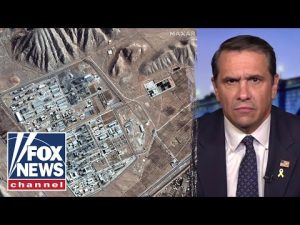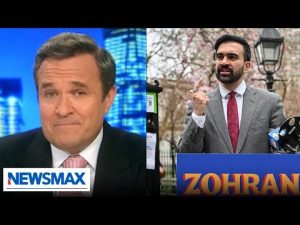In recent discussions surrounding U.S. diplomatic efforts in the Middle East, a notable spotlight shines on the interactions between American officials and representatives from Iran. Steve Witkoff, the United States Special Envoy to the Middle East, recently shared insights into these complex negotiations. With tensions running high and a backdrop of military actions and strategic discussions, the question arises: is there hope for a peaceful resolution with Iran?
During initial talks, Witkoff expressed the murky waters of negotiation with Iranian officials. There seemed to be a constant back-and-forth, similar to trying to decipher a particularly convoluted crossword puzzle. The Iranian delegation appeared hesitant, unsure if they had the internal approval to agree to key terms. The hardline stance of the U.S. was crystal clear: no nuclear enrichment, period. However, conversations reflected an Iranian desire to hang onto enrichment, viewing it as a matter of national pride, while the U.S. maintained that such aspirations were nothing but a recipe for a regional headache.
The U.S. has positioned its red lines firmly in the sand, insisting that any pathway to a nuclear bomb is a dangerous gamble and unacceptable. Witkoff noted that previous discussions about Iran’s supposed intentions to develop a peaceful nuclear energy program were daggers drawn, as the U.S. maintained a deep skepticism. He suggested that various options, like importing already enriched fuel similar to Iran’s neighbors, were on the table. However, Iran’s insistence on maintaining a enrichment program raised alarms about their true intentions.
In light of recent military actions, the situation has taken on a new dimension. With Iran’s nuclear program reportedly experiencing significant damage, some officials questioned whether further talks were even worth the effort. Witkoff dismissed these doubts, insisting that the door to dialogue should remain open and that rebuilding relations could yield dividends in terms of economic prosperity and stability for Iran. This sentiment resonates especially as nations in the region contemplate their positions in the wake of unfolding events.
Furthermore, the conversations go beyond just Iran. There have been strong signals that the Abraham Accords, a series of agreements aimed at normalizing relations between Israel and various Arab nations, could see expansion. Reports suggest that discussions with multiple countries are already underway. Witkoff indicated that the normalization process would serve as a catalyst not only for regional peace but also economic progress. Countries that once sat on the sidelines may see opportunity where there was once only division.
While skeptical, the administration is cautiously optimistic about future agreements. Witkoff reaffirms the importance of maintaining vigilance in monitoring Iran’s capabilities. Yet, U.S. intelligence has reportedly made strides in mitigating Iran’s nuclear ambitions, pushing back their weaponization timeline significantly. The balance of diplomacy and military action creates a complex strategy, but one could argue that it’s a necessary approach to ensure the safety of both American interests and those of allies in an unpredictable region.
In conclusion, as U.S. officials navigate the treacherous waters of diplomacy, it’s evident that the aim is not merely to contain threats but to foster a more prosperous and peaceful Middle East. Building relationships, expanding the Abraham Accords, and remaining steadfast against adversarial ambitions are vital steps in this ongoing journey. With a healthy mix of strategy, negotiation, and the willingness to adapt, there may very well be a path toward resolution — albeit one shrouded in uncertainty and challenges.







